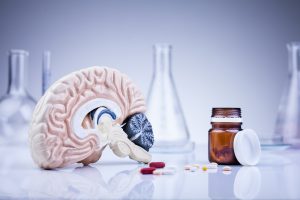How to know if you need help for addiction
Posted on 12 November, 2021 in Info

Addiction and dependency are interchangeable. To see your life revolve around a behaviour you know to be destructive is to see addiction. The development of tolerance, increasing amounts of the behaviour to obtain the same effect, is characteristic of an addiction.
The development of adverse psychological or physical symptoms (shakes, pains, confusion, nausea, hallucinations, nervousness) when the behaviour is withheld or withdrawn is a sign of addiction.
How it begins
Addiction typically begins with denial — the ability to convince yourself that you don’t have a problem when you do. This is a characteristic seen in virtually all addictive behaviour independent of its nature (alcohol use, drug use, gambling, etc). Denial often turns to lying and secretive use like hiding empty bottles or engaging in the addictive behaviour when alone.
You may also witness a loss of interest in the things in life that were previously important to you. You may see a change in your friendships and relationships, and an increasing sense of social withdrawal.
Factors
There are many factors that can contribute to the onset of addiction. Science does not have any definitive way to determine who is likely to become addicted, or prone to addictive behaviour. Some people will become addicted, and some will not. There is, however, strong research on the genetic and biologic factors for alcoholism, for example. We also know that it is more likely for a child to become addicted if there is a family history of drug and/or alcohol addiction, and/or home exposure to drugs or alcohol.
Addiction involves two types of interactions with the brain. Almost all addictive substances have a receptor site in the brain which responds to the drugs active ingredient. The result is a pleasurable sensation or reward. Addiction occurs when the user begins to seek this reward compulsively, and without regard for the negative effects and consequences the drug is having. The need outstrips the knowledge that it is having a destructive effect on not only the user but their friends, family, work. Drug abuse and addiction is not simply a personal problem: it is a public health problem that affects many people and has wide-ranging social consequences.
Addiction is not simply doing a lot of something. It is a chronic relapsing illness. If you, or someone you know and care for, recognise this description and definition, then you can find further information about how to beginning the road to recovery by contacting your GP, reading about getting started with the NHS, or search for and find a treatment centre local to you to contact with Rehab Online’s directory.
